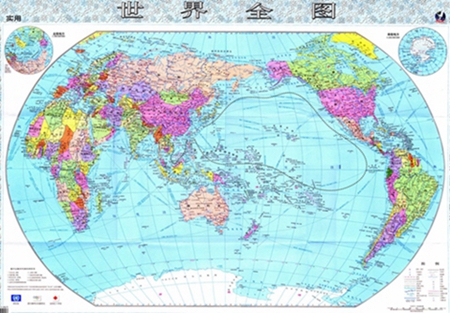


The “251 dash-line” map on Ministry of Harmony, a satirical “news” site
In May, the Council on Southeast Asia Studies at Yale University hosted an international conference to explore the South China Sea dispute. The conference brought together experts from universities and research institutions from around the world and across the United States, including U.S. Naval War College, Harvard Law School, and Yale’s CSEAS, to speak about the South China Sea issue. The conference was a typical academic workshop with panels of experts talking about their work and promoting their ideas, but this particular conference may have raised an even more important issue regarding deeply ingrained Western misperceptions about China.
In a recent article penned by Dr. Harry Kazianis, Director of Defense Studies at The Center for the National Interest, the author describes some of the more lively backroom drama at the conference. He writes that on the sidelines of the conference most panel experts were focused on rumors of China’s “latest territorial claims” about a “251 dash-line” that extends Beijing’s claims to Hawaii and almost the entire Pacific Ocean, something he calls “mapfare.” As it turns out, Dr. Kazianis and unspecified other experts were actually fooled by a 2-year-old piece of political satire.
How China’s “latest territorial claims” got the conference buzzing in the first place is not talked about, but the “251 dash-line” mapfare that caused the stir is from a little-known satirical “news” site called Ministry of Harmony. One might expect a different conclusion to soon emerge after the experts realized the outrageous territorial claims were a joke, but the story continues along the same line in an attempt to drive home a much larger point. The point being that China is perceived as some sort of rogue state and this ingrained perception of China on the world stage as a power bent on domination is none other than China’s fault. Dr. Kazianis writes: “The fact that none of us at the conference were shocked speaks volumes to the now ingrained perception of China on the international stage as a power bent on changing the status-quo—no matter what the cost.” He closes by saying, “It’s something Beijing should bear in mind.”
The story is amusing but also alarming and ultimately insightful. Well-studied, experienced authorities fall for an Onion-esque article that is 2 years old at a major academic conference and after realizing that they were duped nevertheless reach the same exact conclusion and then blame China for the negative perception. What does this tell us about how the West perceives China? Old thinking that is out of step with the new realities of world politics and not “the fact that none of us at the conference were shocked” is what really speaks volumes about the whole perception issue. The deeply ingrained Western belief that China has no choice but to act aggressively and therefore will and must act aggressively just like Western powers of the past is pushing a narrative that Beijing wants to avoid. Simply put, China’s negative image on the world stage is more manufactured by the West than it is shaped by China’s actions, and perhaps this is the something we should carry in our mind. If you open up the black box and study China’s actions, it is clear that leaders in Beijing want to tamp down geopolitical rivalry, not promote it.
 Fire brigade in Shanghai holds group wedding
Fire brigade in Shanghai holds group wedding Tourists enjoy ice sculptures in Datan Town, north China
Tourists enjoy ice sculptures in Datan Town, north China Sunset scenery of Dayan Pagoda in Xi'an
Sunset scenery of Dayan Pagoda in Xi'an Tourists have fun at scenic spot in Nanlong Town, NW China
Tourists have fun at scenic spot in Nanlong Town, NW China Harbin attracts tourists by making best use of ice in winter
Harbin attracts tourists by making best use of ice in winter In pics: FIS Alpine Ski Women's World Cup Slalom
In pics: FIS Alpine Ski Women's World Cup Slalom Black-necked cranes rest at reservoir in Lhunzhub County, Lhasa
Black-necked cranes rest at reservoir in Lhunzhub County, Lhasa China's FAST telescope will be available to foreign scientists in April
China's FAST telescope will be available to foreign scientists in April "She power" plays indispensable role in poverty alleviation
"She power" plays indispensable role in poverty alleviation Top 10 world news events of People's Daily in 2020
Top 10 world news events of People's Daily in 2020 Top 10 China news events of People's Daily in 2020
Top 10 China news events of People's Daily in 2020 Top 10 media buzzwords of 2020
Top 10 media buzzwords of 2020 Year-ender:10 major tourism stories of 2020
Year-ender:10 major tourism stories of 2020 No interference in Venezuelan issues
No interference in Venezuelan issues
 Biz prepares for trade spat
Biz prepares for trade spat
 Broadcasting Continent
Broadcasting Continent Australia wins Chinese CEOs as US loses
Australia wins Chinese CEOs as US loses